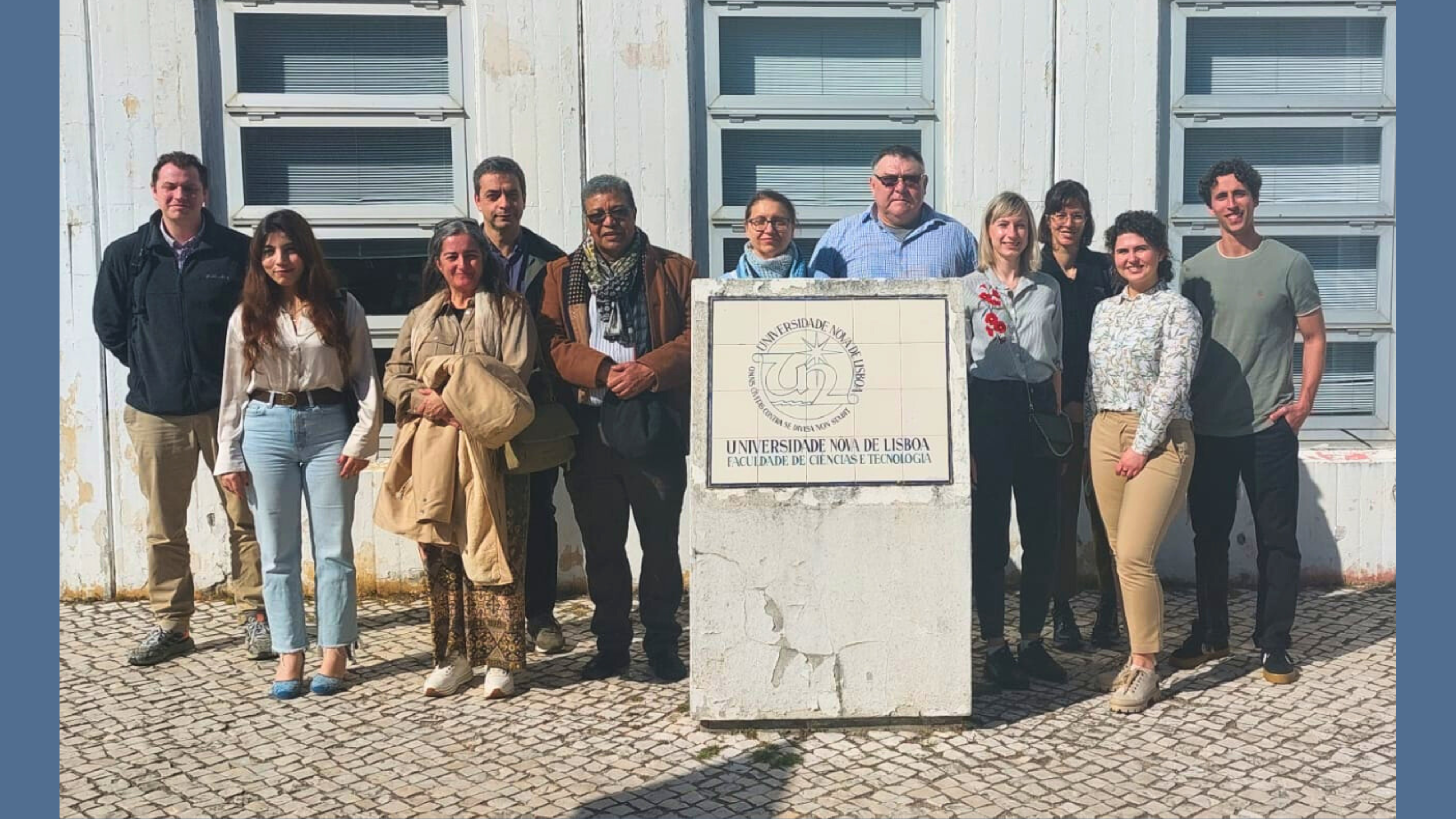The PG2CRM (Phosphogypsum Processing to Critical Raw Materials) project meeting, hosted by the NOVA School of Science and Technology (NOVA University Lisbon) in Lisbon, Portugal from March 19-20, 2024 marked a collaborative effort aimed at exploring the potential of comprehensive use of phosphogypsum while addressing environmental concerns.
The agenda prominently featured updates on various work packages and an overall progress report for the project presented by Dr. Nils Haneklaus (Freiberg University of Mining and Technology, Germany). Notably, Professor Essaid Bilal, Dr. Hajar Bellefqih (École des Mines de Saint-Étienne, France) and Dr. Katarzyna Kiegiel (Institute of Nuclear Chemistry and Technology, Poland) provided insights into the analytical results and characterization of phosphogypsum within the Sample Selection and Lab-Scale work packages.
Attendees engaged deeply with newly acquired data, discussing the radionuclide content in phosphogypsum from diverse locations and techniques for extracting rare earth elements for commercial applications. Considerable attention was given to the Environmental Assessment work package, comprising of environmental and toxicological risk assessments derived from by-products and co-products of distinct phosphogypsum processing directions, as well as life cycle analysis and impact quantification. Assistant Professor Sofia Barbosa (NOVA University Lisbon) presented the audience with the results of micro X-ray fluorescence analysis, demonstrating correlations in the detection of elements at the micrometric scale.
The BRT/CZU team comprised of Assoc. Prof. Dr. Yelizaveta Chernysh and Dr. Viktoriia Chubur showcased progress in phosphogypsum's impact on plant growth efficiency and ultrasonic pretreatment of poultry manure and phosphogypsum. Furthermore , Assoc. Prof. Dr. Yelizaveta Chernysh presented results, for the "Phosphogypsum as a mineral resource for bioprocesses" (PG2CRM project) completed under the Marie Skłodowska-Curie Postdoctoral Fellowship (MSCA-PF) with funding from the European Union under the MSCA4Ukraine framework. Following the presentation, an important discussion ensued, with cooperation efforts and results dissemination action at the forefront of the conversation. An important outcome included adding phosphogypsum dumps in Ukraine into the common research network of the EU.
The final day of discussions centered on open dialogue regarding follow-up projects and joint publications, emphasizing the collaborative nature of the endeavor. We were left with a renewed sense of inspiration and a fresh set of ideas to take forward.
Apart from the presentations and discussions, colleagues from the NOVA University Lisbon organized a tour to the Laboratory of Instrumentation, Biomedical Engineering, and Radiation Physics, where Sofia Pessanha showcased the equipment used for the analysis of phosphogypsum samples. Among this equipment were the micro-X-ray fluorescence spectrometer M4 TORNADO and Raman spectroscopy technique utilizing a Horiba-Jobin Yvon XploRA confocal spectrometer.
The PG2CRM meeting served as a platform for interdisciplinary exchange and progress in harnessing phosphogypsum's potential while ensuring environmental sustainability.
Stay tuned for further developments in this innovative field!


